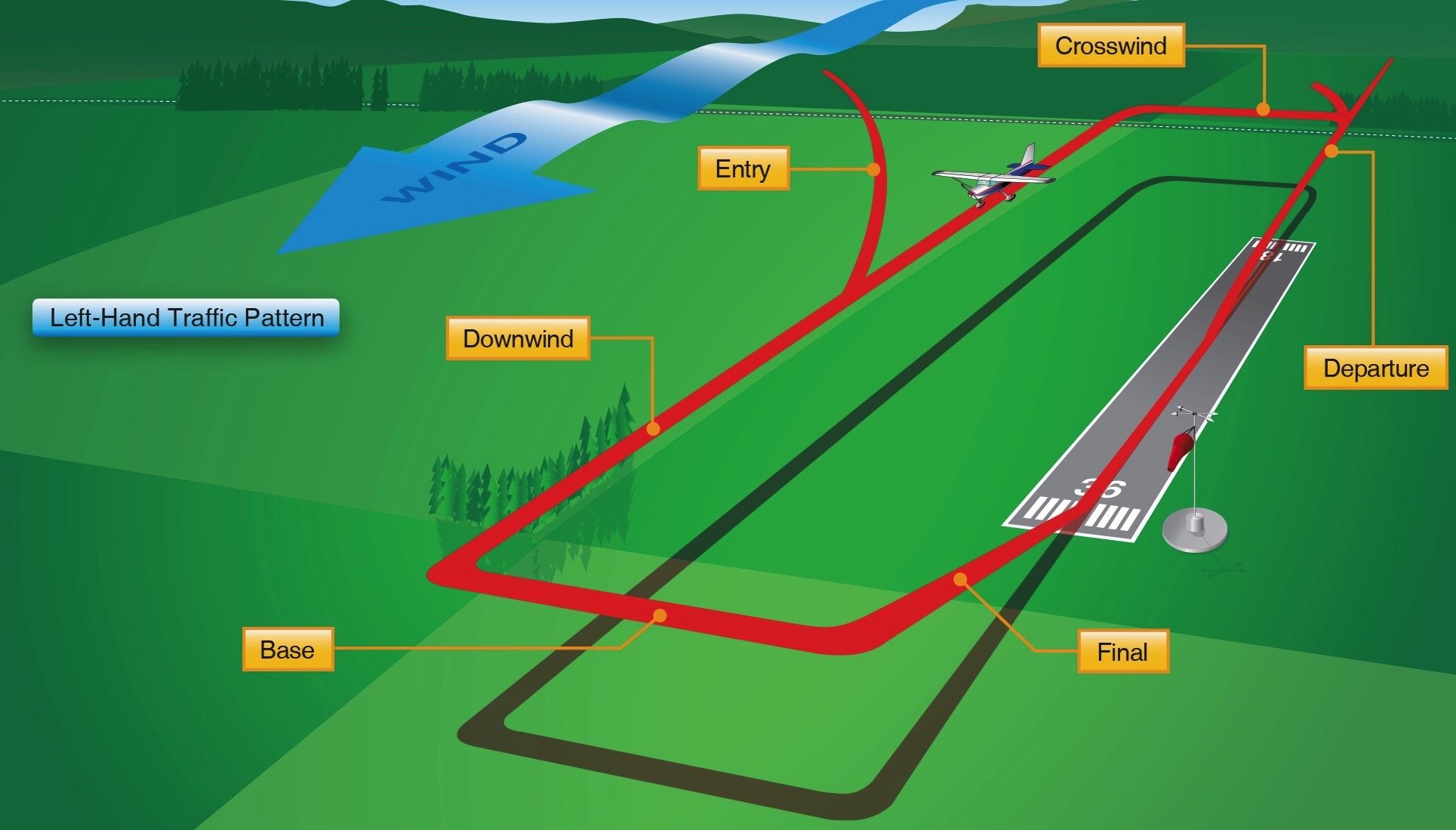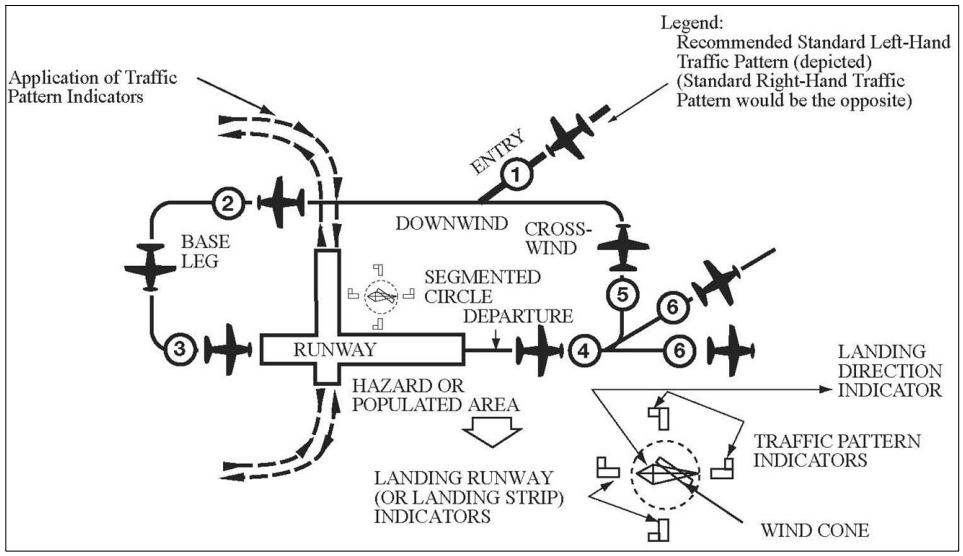By ALI AL ANSSARI
Congested Areas and Open-Air Assemblies.
Except as necessary for take-off or landing, or except by permission from the
appropriate authority, a VFR flight must not be flown over the congested areas of
cities, towns or settlements, or over an open-air assembly of persons, at a height
less than 1 000 feet (300 m) above the highest obstacle within a
radius of
600 m
from the aircraft, or below a height which will permit the aircraft to land clear of
persons or property on the ground, in the event of an engine failure, whichever is the
higher.
Low Flying Absolute Minima.
Except for the purpose of landing and taking-off or with the permission of the
appropriate authority, no aircraft is to fly at a height less than 500 feet (150 m) above
the ground or water.
THE VISUAL CIRCUIT.
The Visual Circuit is a traffic pattern which imposes order on aerodrome traffic taking
off, landing and flying in the immediate vicinity of an aerodrome. At a controlled
aerodrome, the Visual Circuit is controlled by Aerodrome Control, usually from the
Air Traffic Control
Tower.
 |
The Visual Circuit. Aircraft
must conform to the traffic pattern being followed by
other aircraft operating at an aerodrome.
|
All aircraft must either conform to the traffic pattern (circuit) being followed by other
aircraft operating at an aerodrome, or else
keep clear of the Visual Circuit.
The Standard Circuit.
The Standard Circuit is a left-hand circuit consisting of 4 “legs” as shown in the
diagram below. In
a left-hand
circuit, all turns are made
to the
left.
If, for some operational reason, there is a right-hand circuit in force a pilot will normally
be advised by the responsible Air Traffic Service Unit (ATSU) over the radio prior
to joining the circuit. For aircraft with no radio there are designated signals in the
signals square which inform pilots of the circuit direction in force (see Annex A). If an
aircraft is not fitted
with a radio, the pilot
should plan to carry out an overhead
join to
the aerodrome and
make a careful check of
the signals
square.
If a pilot with a serviceable radio is in doubt about the circuit direction in force, he
should confirm the direction with the ATSU.













ليست هناك تعليقات:
إرسال تعليق